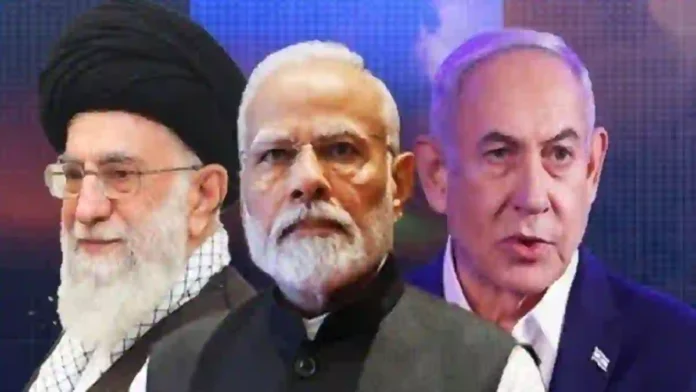Amid escalating tensions between Israel and Iran, India is navigating a complex diplomatic landscape, balancing its strategic interests with both nations while maintaining a policy of strategic autonomy. India’s approach is shaped by its core national priorities: defence cooperation, energy security, regional stability, and the protection of its economic and expatriate interests in West Asia. India’s relationship with Israel has deepened significantly over the past decades, particularly in the defence sector. Israel is now one of India’s top suppliers of advanced military technology, including drones, radar systems, and missile defence platforms such as the Barak-8.
The two countries have also expanded cooperation in counter-terrorism, joint military exercises, and defence innovation, making Israel a crucial partner in India’s national security framework.
Read- GIL Develops Indigenous Brake Parachute System For Su-30MKI And TEJAS Jets
Read- Pakistan’s claim on 3 Rafales shot down ‘inaccurate’, better than F-35 & Chinese fighters—Dassault CEO
Conversely, India’s ties with Iran are rooted in historical and cultural connections, as well as vital energy and trade interests. Iran has long been a key source of crude oil for India, and the Chabahar port—developed with Indian investment—serves as a strategic gateway for trade with Afghanistan and Central Asia, bypassing Pakistan. While direct military cooperation with Iran remains limited, both countries have collaborated on maritime security and anti-piracy operations.
The current Israel-Iran conflict presents a significant foreign policy challenge for India. New Delhi has consistently called for restraint and diplomatic engagement, with External Affairs Minister S. Jaishankar communicating directly with counterparts in both countries to convey global concerns and advocate for a return to dialogue. India’s official statements emphasise its close and friendly relations with both nations and its readiness to support de-escalation efforts, reflecting its neutral stance.
Read- Can Russia’s Su-57E Serve As An Interim Solution For The IAF Until The AMCA Enters Mass Production?
India’s broader strategy is guided by the principle of strategic autonomy, which allows it to pursue balanced relations with competing powers without becoming entangled in regional conflicts or external alignments.
This approach is particularly vital given India’s reliance on Iranian energy resources and the potential threat to its economic interests and expatriate communities from prolonged instability in West Asia. India has also distanced itself from international statements that single out either party, reiterating its consistent call for dialogue, diplomacy, and peaceful resolution of conflicts.
India’s careful balancing act amid the Israel-Iran conflict underscores its commitment to safeguarding national interests through diplomatic engagement, strategic autonomy, and a multi-alignment approach. By maintaining neutrality and focusing on long-term partnerships, India aims to preserve its regional influence and ensure stability in a volatile geopolitical environment.
Based On India Today Report
Agencies




